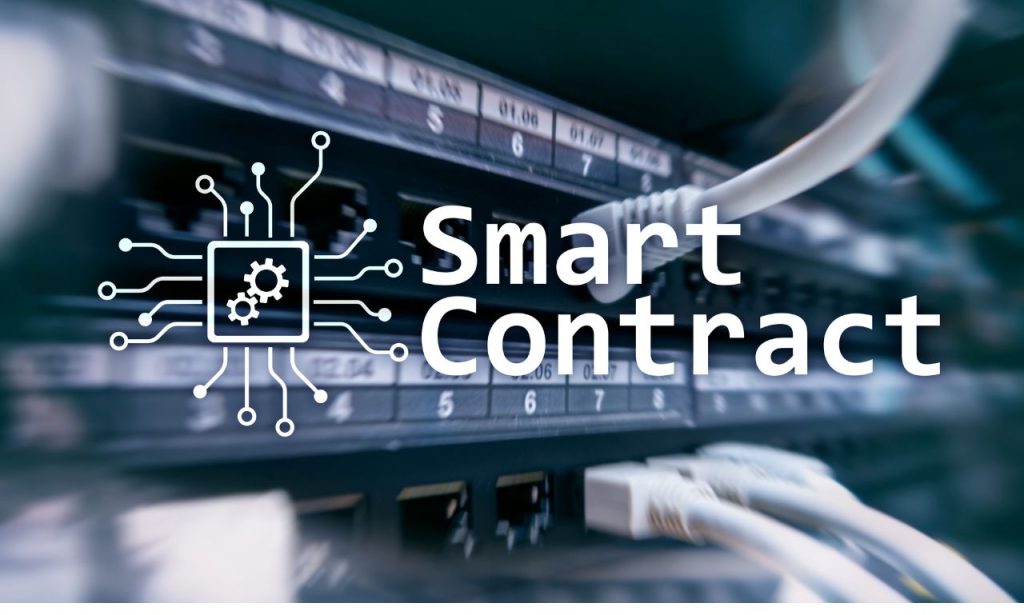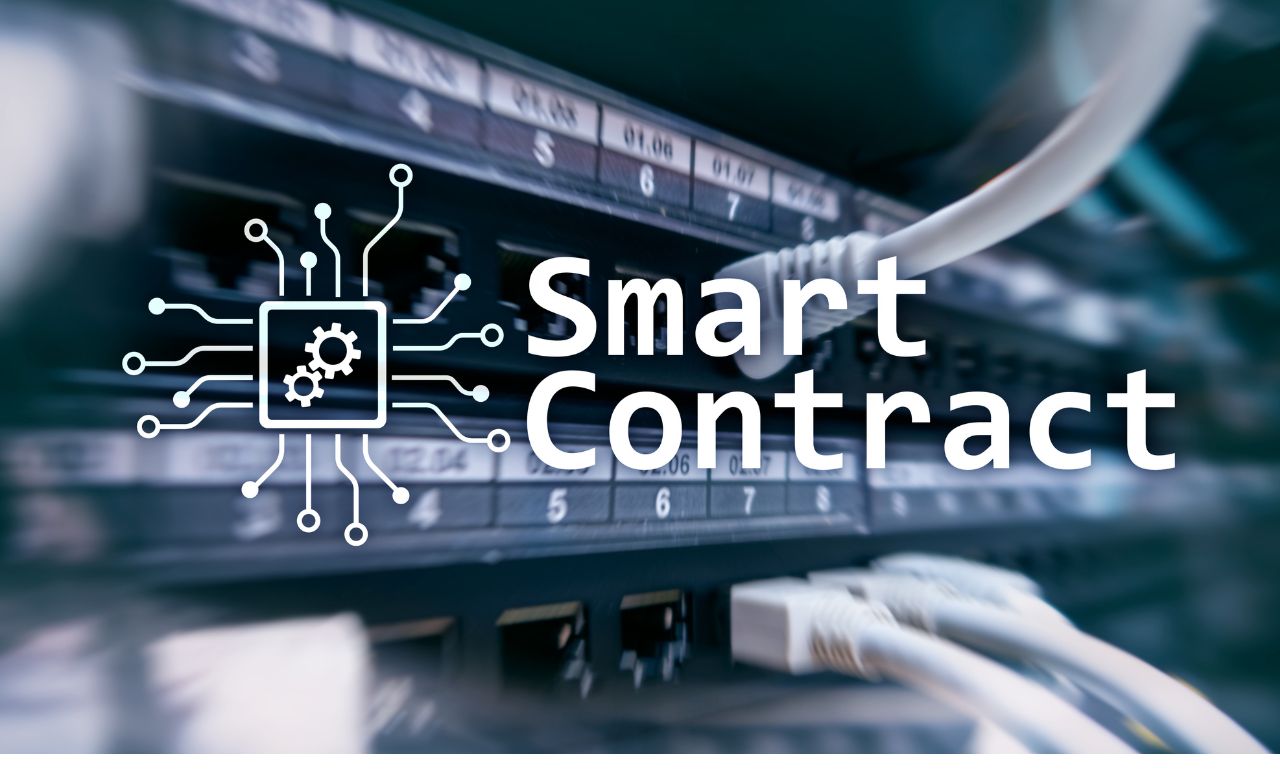If you’ve been around the blockchain space for a while, you’ve probably heard the term smart contracts tossed around. It’s one of those buzzwords that everyone uses but few truly understand. So, what exactly makes these digital agreements so revolutionary?
Smart contracts are transforming online interactions by eliminating intermediaries and creating self-executing agreements that reside directly on the blockchain. They’re not just pieces of code; they represent a significant shift in how trust, transparency, and automation intersect in the digital world.
In today’s fast-paced digital economy, these contracts are shaping how businesses, institutions, and individuals operate. Whether you’re in finance, healthcare, real estate, or governance, smart contracts are changing how transactions are executed and verified — efficiently, securely, and without unnecessary friction.
Let’s break down how smart contracts are changing modern blockchain applications and why they’re becoming a cornerstone of digital innovation.
How Smart Contracts Work
At their core, smart contracts are self-executing programs stored on a blockchain. They automatically enforce rules and conditions once predefined triggers are met. Imagine a vending machine: you insert a coin, choose your item, and the machine automatically delivers it. That’s a simple way to understand how an innovative contract functions.
When two parties agree on specific terms, those conditions are encoded into the blockchain. Once the system verifies that all requirements are fulfilled, the contract executes itself — with no human involvement, no waiting time, and no third-party involvement.
Each transaction is recorded in an immutable ledger. Once a contract is executed, the details can’t be changed or deleted. That’s part of what gives blockchain its power — an unbreakable chain of digital truth.
Why Smart Contracts Are Transformative

Smart contracts have taken the blockchain concept far beyond cryptocurrency, extending its applications to various industries. They bring automation, trust, and programmability to nearly every sector imaginable. The real magic lies in how they replace manual verification processes with automated code logic.
By eliminating intermediaries, smart contracts reduce transaction costs and increase speed. They also minimize human error and create a verifiable record of every interaction. That means fewer disputes, faster results, and more secure outcomes.
These contracts are rewriting how people collaborate digitally. Instead of depending on centralized systems or institutions, individuals and organizations can trust the blockchain itself.
Automating Trust and Disintermediation
Traditional agreements require trust in lawyers, brokers, or financial institutions. Smart contracts automate that trust.
Once a contract is programmed, it runs exactly as written. There’s no need for intermediaries or oversight. Two strangers can transact confidently, knowing the blockchain ensures fairness and accuracy.
Think about how many layers of approval exist in a typical financial deal. With smart contracts, those layers collapse into a single, verifiable process. You’re not waiting days for a transfer to clear or for someone to “approve” a transaction. It happens instantly once conditions are met.
Enhanced Transparency and Immutable Records
One of the most significant advantages of blockchain technology is its transparency. Every smart contract executed is visible on a public or permissioned ledger.
This level of openness ensures accountability. You can’t quietly modify a deal or erase data. Once a contract is recorded, it’s permanent. This immutability helps prevent fraud and corruption, making blockchain systems far more reliable than traditional record-keeping methods.
Transparency builds confidence. When every transaction is traceable, trust becomes built into the system itself rather than relying on external validation.
Programmable Logic
What sets smart contracts apart is their flexibility. They aren’t static; they can be designed to perform complex actions depending on specific conditions.
For instance, a smart contract can automatically distribute funds to multiple parties based on performance metrics, delivery schedules, or even voting outcomes. Developers can encode logic that responds dynamically to user input, external data, or blockchain events.
This programmable capability turns blockchain networks into living ecosystems where code replaces bureaucracy. It’s an evolution that seamlessly merges finance, law, and technology into a single layer of automation.
Key Application Areas
Decentralized Finance (DeFi)
Smart contracts are the backbone of decentralized finance, also known as DeFi. They enable users to lend, borrow, trade, and earn interest without the need for banks or intermediaries. Everything operates through code.
Instead of relying on a central authority, DeFi platforms utilize smart contracts to match lenders and borrowers automatically. Interest rates are set algorithmically, and collateral is handled through blockchain logic.
This not only speeds up financial operations but also makes them accessible to anyone with an internet connection. It’s finance without borders, powered by programmable agreements.
Supply Chain Management
In supply chains, transparency is everything. Smart contracts enable the tracking of products from production to delivery with real-time verification.
When each stage of a supply chain is logged on a blockchain, everyone — manufacturers, retailers, and customers — can see where an item is and confirm its authenticity.
This reduces counterfeit risks, improves efficiency, and ensures accountability across the entire supply chain. When disputes occur, there’s no confusion — the blockchain provides the evidence.
Real Estate and Property
Buying or selling a property involves a significant amount of paperwork and intermediaries. Smart contracts simplify that.
They enable direct transfers of ownership once payment conditions are fulfilled. Escrow services, title verification, and even land registry updates can all be automated.
This doesn’t just speed up transactions — it makes property markets more secure and less prone to fraud or administrative errors. Ownership becomes transparent and verifiable in a digital record that can’t be manipulated.
Healthcare
The healthcare sector handles sensitive data in numerous forms and adheres to stringent regulations. Smart contracts can streamline much of that complexity.
Patient data, insurance claims, and treatment authorizations can all be managed through blockchain-based systems. This ensures privacy, accuracy, and traceability at every stage.
Hospitals and insurers can interact transparently without compromising confidentiality. In a world where data breaches are common, blockchain introduces a layer of trust that traditional systems often lack.
Digital Identity and Governance
Smart contracts are also reshaping digital identity management. Instead of storing personal data in centralized servers, users can control their own information on decentralized platforms.
This creates a self-sovereign identity system where individuals decide who can access their data and under what conditions. Governments and institutions can use these frameworks for secure voting systems, license issuance, or digital citizenship programs.
By reducing data silos and enhancing privacy, blockchain-driven governance models can strengthen citizen trust and reduce bureaucratic inefficiency.
NFTs and Digital Assets
Non-fungible tokens (NFTs) are another innovative development in smart contracts. Each NFT is governed by an agreement that defines its ownership and transfer rules.
Artists, musicians, and creators utilize these digital assets to sell their work directly to fans, bypassing intermediaries. Royalties can even be embedded in the contract, ensuring that creators earn income every time their work is sold or licensed.
This model revolutionizes how intellectual property is handled — blending creativity with programmable economics.
Advanced Capabilities
Bridging the Off-Chain World
One major challenge in blockchain is connecting digital agreements with real-world data. Smart contracts overcome this through oracles — systems that feed external information into the blockchain.
For example, a contract could trigger payments based on weather data, sports scores, or shipment confirmations. Oracles serve as bridges between the blockchain and the physical world, expanding the capabilities of smart contracts.
As this connection strengthens, we’ll see smart contracts integrated into more aspects of daily life — from insurance payouts to logistics and beyond.
Interoperability
Different blockchains often operate in silos. Smart contracts are now evolving to communicate across multiple chains.
This interoperability enables data and assets to flow seamlessly between platforms, fostering a more interconnected blockchain ecosystem. Businesses can leverage the strengths of multiple networks — including security, speed, and scalability — without being locked into a single system.
As these networks become increasingly connected, we move closer to a seamless digital economy driven entirely by decentralized logic.
Security Vulnerabilities and Robust Auditing
While smart contracts are powerful, they’re not infallible. Coding errors can lead to serious vulnerabilities. Once deployed, a flawed contract is often tricky — and sometimes impossible — to rectify.
That’s why auditing is critical. Every smart contract must be reviewed by experts who understand both the technical and business implications of its code. A single line of faulty logic can result in lost funds or exploited systems.
Security must evolve alongside innovation. Developers are learning that writing clean, tested, and verifiable code is just as important as creativity itself.
Legal Recognition and Enforcement
Here’s where things get tricky — most jurisdictions still lack clear laws governing smart contracts.
Are they legally binding? Can they replace traditional agreements in court? These questions are being debated worldwide.
Some countries are beginning to recognize digital agreements as enforceable under certain conditions. However, the legal landscape is still catching up to the technology. Until frameworks mature, hybrid models combining code and traditional law will remain common.
The Evolving Regulatory Landscape

Regulation is both a barrier and an enabler. Too many restrictions could slow innovation, but no regulation invites risk.
Governments are working to strike a balance — protecting users without stifling creativity. As more industries adopt blockchain, we can expect to see clearer compliance standards, more stringent auditing requirements, and more robust certification frameworks.
The evolution of regulation will define how far and how fast smart contracts can shape our future economy.
Conclusion
Smart contracts have turned blockchain from a niche technology into a universal infrastructure for trust and automation. They’re redefining how agreements are made, executed, and verified in a digital-first world.
The power of automation, transparency, and programmability continues to reshape entire industries — and we’re only scratching the surface. From finance to healthcare, supply chains to creative arts, smart contracts are not just changing how we do business; they’re changing what’s possible.
If the last decade was about understanding blockchain, the next will be about applying it — intelligently, securely, and universally.
FAQs
Smart contracts are self-executing programs that automatically execute digital agreements when specific conditions are met.
They can handle many tasks that require verification, but complex legal cases still need human interpretation and oversight.
They’re generally secure, but their security depends on how well they’re coded and audited. Poorly written contracts can be exploited.
Finance, supply chain, real estate, and digital identity systems are among the leading adopters.
5. How Smart Contracts Are Changing Modern Blockchain Applications?
They automate transactions, enhance trust, and expand blockchain use beyond cryptocurrency — into real business and governance solutions.





